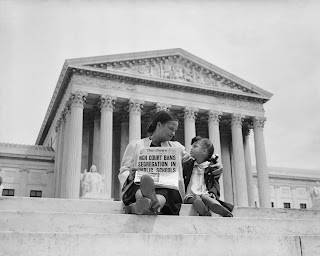The EOTOS do not just show a collection of dates, names, and events—it is the living story of us all. By delving into the past, we find the foundation upon which our present is built and the blueprint for our future.
First, the events covered in the EOTO'S are a part of history that helps shape the world we live in today. Wars fought, movements, discoveries and more of these concepts through time has sculpted the values and customs we share. The debates and cases of the past, learned about in these EOTO'S, are what has helped shape our government systems to what they are today. They affect every one of us, from our rights we exercise to our daily responsibilities.
History reveals patterns and truths about human nature. It shows us why some societies thrive and some fail. Successful societies can adapt better and on the other hand, ones that are unable to change or fail to address their people’s needs will be likely to fail.
History also answers difficult questions and shows us that conflicts arise from ambition, fear, and misunderstandings.The tragedy that is involved with and follows history leads to mutual trust and unity.
History reminds us of humanity’s capacity for change and progress. The individuals and cases that we learned about involved individuals who changed society for the better, whether it be leaders who fought for civil rights, innovators, and everyday people who stood against injustice. This leads to show that change is not just an important concept, but essential.
By studying history, we also gain a deeper understanding of change itself. We see how ideas evolve over time and how societies transform. These help us understand the change sin our own era in today's world.
History helps people learn from their past mistakes. It is a mirror reflecting successes and downfalls. When we study past errors, we gain the knowledge to make better choices in the future.
Finally, history gives us context for the human experience and what it means to be human. It reminds us that we are part of something much larger than ourselves, and world constantly filled with triumphs and fails. It teaches empathy and connects us to people around us.
These posts show more than a record of what has happened; they act a tool that allows us to analyze and explain the problems and events that shaped the world we live in today. By learning about the past, we uncover the causes of current challenges and analyze solutions more easily.
Studying history positions us to recognize patterns that others might look past. We learned about trends in politics, economics, or human behavior, which often repeat. Understanding these patterns helps us anticipate and address future challenges.
History also builds a sense of identity. It connects us to our beginning, helps us understand where we come from, and gives us a deeper appreciation for out journey of how we got here and where we are going.
History fosters empathy and understanding. By learning and hearing the stories of those who lived before us, we gain insight into their struggles, hopes, and fears. This new perspective encourages compassion and reminds us how we are all brought together.
In learning from the past by using these EOTOS, we empower ourselves to create a better, more thoughtful future.


.webp)

